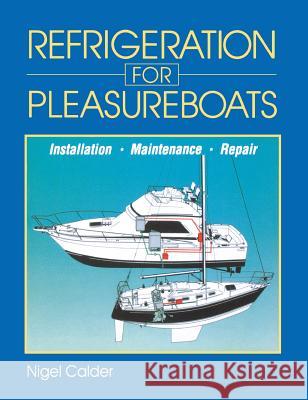Refrigeration for Pleasureboats: Installation, Maintenance and Repair » książka
Refrigeration for Pleasureboats: Installation, Maintenance and Repair
ISBN-13: 9780071579988 / Angielski / Twarda / 1990 / 192 str.
You've just spent a day on the water under a sweltering sun. You sit back, enjoying the seclusion of a remote anchorage, lulled by the rattle of ice in your cold drink. A pretty picture, but a rare one aboard cruising boats. A house is never without its utility umbrella, but when you pull your boat's shore-power plug you're on your own. Even good refrigeration systems use a lot of energy. And bad ones? Erase those ice cubes from your tropical fantasy. Refrigeration for Pleasureboats explains how the cruising sailor can acquire the amenities--even the necessities--of an efficient onboard refrigeration system. Whether you're off for two days or two years, you must balance the highest possible cooling capacity with the lowest possible energy consumption. Calder explains clearly and logically how and why refrigeration components work, how to keep them working efficiently and economically, and what to look for when something goes wrong. Boat refrigeration systems are phenomenally expensive. A modest refrigerator/freezer system, professionally built and installed, can cost more than $4,000. Yet these units can still have unpleasant side effects--such as killing the boat's batteries. Refrigeration for Pleasureboats provides all the step-by-step information an amateur needs to design and build a custom refrigeration unit that will cost far less than half the price of an off-the-shelf unit and will likely run better with far less drain on the batteries. With Calder's maintenance and troubleshooting tips, you'll be able to keep it running for years to come and keep those ice cubes tinkling in that frosted glass.











